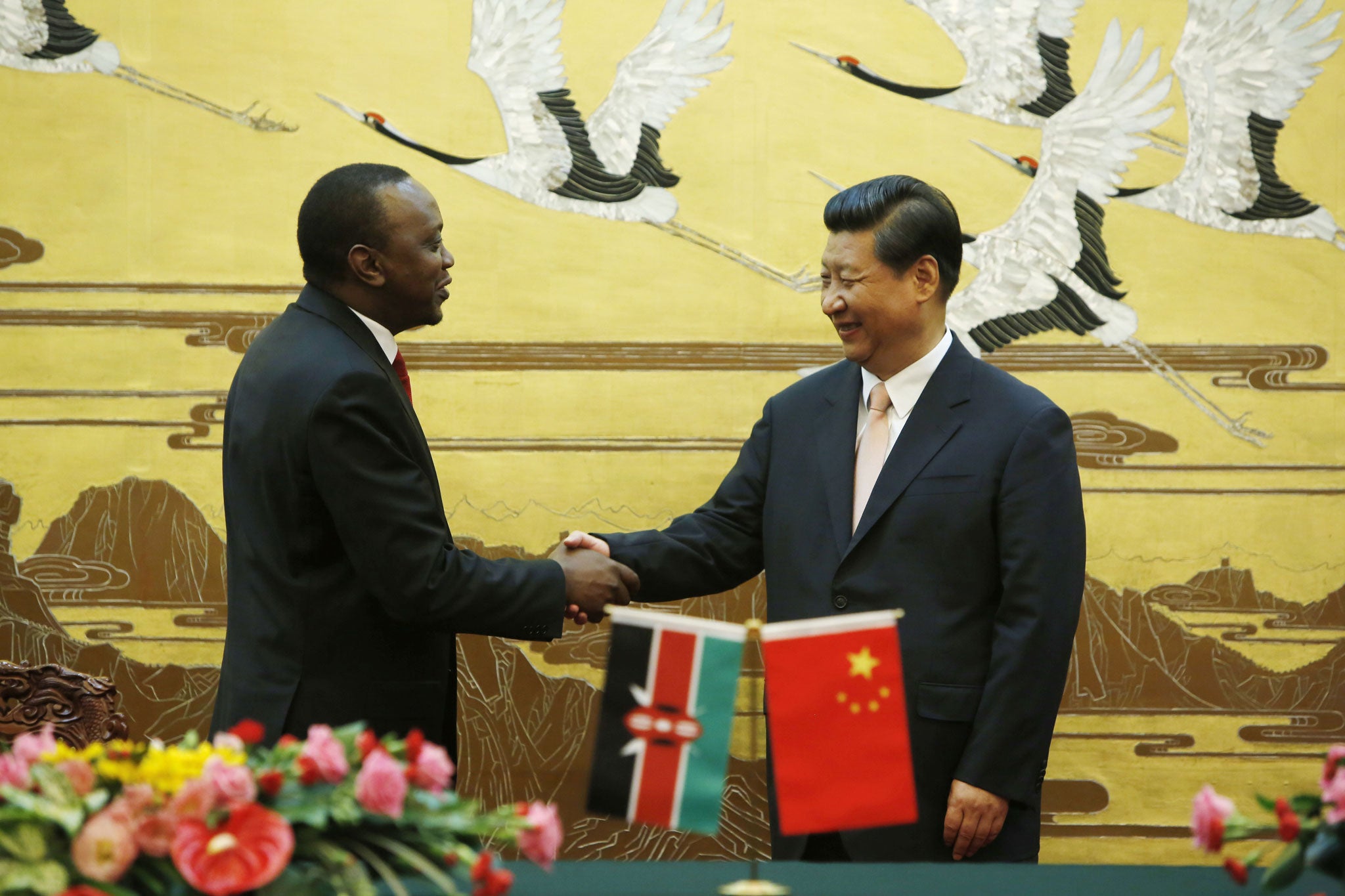Kenya is looking East, but not for comfort
In the wake of the Westgate attack, the US and UK have offered moral support and assistance to Kenya. China, whose interests in the country continue to grow, was silent

Your support helps us to tell the story
From reproductive rights to climate change to Big Tech, The Independent is on the ground when the story is developing. Whether it's investigating the financials of Elon Musk's pro-Trump PAC or producing our latest documentary, 'The A Word', which shines a light on the American women fighting for reproductive rights, we know how important it is to parse out the facts from the messaging.
At such a critical moment in US history, we need reporters on the ground. Your donation allows us to keep sending journalists to speak to both sides of the story.
The Independent is trusted by Americans across the entire political spectrum. And unlike many other quality news outlets, we choose not to lock Americans out of our reporting and analysis with paywalls. We believe quality journalism should be available to everyone, paid for by those who can afford it.
Your support makes all the difference.In March last year, a clear sign emerged of power shifts in Kenya. The French ambassador, Etienne de Poncins, publicly complained that accessing the then president, Mr Mwai Kibaki, was almost impossible for Western diplomats.
Mr Kibaki, who has since retired, responded through his spokesman saying that he was not unreachable “to any nation that works for the good of the Kenyan people”.
In the last 10 years of Kibaki rule, Kenya, like most African countries, has not hidden its preference for China to the traditional allies like United Kingdom, France and America.
In March this year, Mr Uhuru Kenyatta succeeded him. He wasted no time in following in Mr Kibaki’s footsteps.
For the new president, though, it is understandable. Together with his deputy, William Ruto, he is facing crimes against humanity charges at the International Criminal Court in The Hague, Netherlands.
Western countries have said they can have only essential contact with the Kenyan leaders owing to the charges. China, on its part, does not care what crimes you are accused of. To them, business interests come first.
President Kenyatta and his deputy have succeeded in portraying China as the true friends of Kenya and western countries as the enemies.
A few days after US president, Barack Obama, skipped Kenya during his Africa visit, Mr Kenyatta embarked on a tour of Russia and China. Some observers saw this as a coded message to the US president.
But a look at the recent events paints a different picture. When Jomo Kenyatta International Airport was gutted by fire in August, it is US and UK governments that came through.
President Obama called his Kenyan counterpart offering to help them get the airport operational and secure as quickly as possible.
Indeed, those who passed via the airport can attest that the tents – which were used as a temporary terminal -, were branded ‘USAID’.
The FBI joined in the investigations of the cause of the fire. The British donated x-ray equipment to boost the security. China was nowhere to be seen. No. Actually, they were there –constructing the new US$ 654 million (£404 million) terminal.
The script was no different after the September 21 terror attack on Westgate Mall. World leaders, including Obama and UK Prime Minister David Cameron, called Mr Kenyatta to express sympathy.
The FBI and Scotland Yard are currently assisting Kenyan investigators with a forensic probe.
Indeed, when he announced that the siege had come to an end, President Kenyatta gave a list of “many friends throughout the world who came through with moral support and offers of various forms of assistance”.
Mr Kenyatta thanked President Yoweri Museveni (Uganda), Jakaya Kikwete (Tanzania), Paul Kagame (Rwanda), Salva Kiir (South Sudan) and Pierre Nkurunziza (Burundi) saying they called daily to encourage Kenyans.
“Other African and global leaders, including presidents Goodluck Jonathan of Nigeria, Jacob Zuma of South Africa, and Hailemariam Desalegne, Prime Minister of Ethiopia, as well as United States president Barack Obama, the prime ministers of Israel and Britain have also expressed their sympathies and best wishes,” added President Kenyatta.
Although the country was in deep mourning, it did not take long before some people like blogger, Robert Alai, noticed that China was not on the list.
He tweeted: “China missing from President Uhuru's mentions. But #isorait (it’s alright). #WestgateAttack.”
This touched off a big discussion on Twitter. This should serve as a lesson for the leadership to know who the true friends of Kenya are. As they say, a friend in need is a friend in deed.
Moving forward, though, I do not see a change in policy by the Kenyan government especially with China willing to give Mr Kenyatta and Mr Ruto a shoulder to lean on over their ICC cases.
Kenfrey Kiberenge is a journalist with Sunday Nation in Kenya
Join our commenting forum
Join thought-provoking conversations, follow other Independent readers and see their replies
Comments